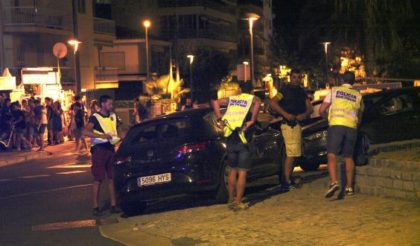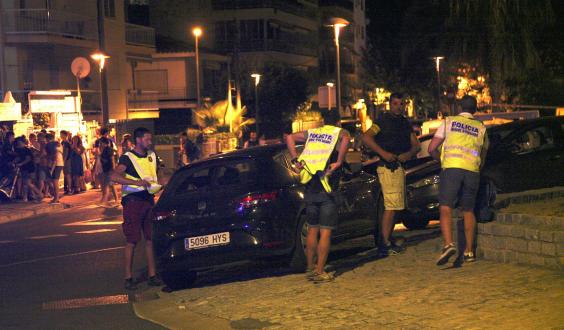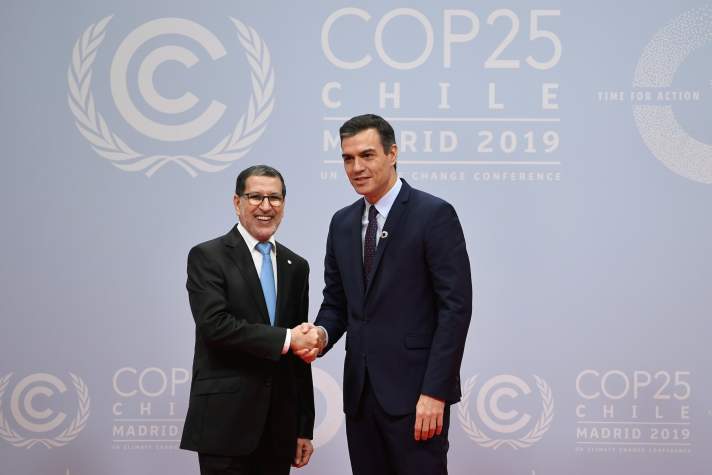 The Moroccan origins of the perpetrators of the Barcelona and Cambrils attacks offered an easy scapegoat for pundits and media outlets in their attempts to ascribe terrorism to an external factor. By doing so, they further stigmatize a community of 800,000 Moroccan expatriates in Spain and fail to consider the deep causes of Europe’s residual terrorism.
The Moroccan origins of the perpetrators of the Barcelona and Cambrils attacks offered an easy scapegoat for pundits and media outlets in their attempts to ascribe terrorism to an external factor. By doing so, they further stigmatize a community of 800,000 Moroccan expatriates in Spain and fail to consider the deep causes of Europe’s residual terrorism.
The analyses that deliberately seek to put the blame on the Moroccan origins of the perpetrators are as superficial as they are lame. A look at the biographies of most of the perpetrators shows that they all have moved to Spain before the age of adulthood.
The driver of the van that ploughed into pedestrians in Las Ramblas in Barcelona, Younes Abouyaaqoub, 22 years old, is certainly born in Mririt in Morocco, but he moved to Spain at the age of 7. His brother, Houssain, one of the five terrorists involved in the Cambrils attack immigrated to Spain at the age of 4. Were these brothers terrorists when they left Morocco in such an early age?
Other terrorists of Moroccan origin involved in the Catalonia attack include the Hichamy brothers, Omar, 21, and Mohamed 24. They were shot dead in Cambrils. They were both born in Mrirt. The two brothers left Morocco respectively at the age of 3 and 6. Nevertheless, their Moroccan origin is highlighted every now and then by some Western media outlets as if it was in Mrirt where they learnt the basics of terrorism.
Likewise, the other suspects, the Aalla brothers, Said, Youssef have immigrated to spain at the age of 8 and 11 respectively, while one of the Oukabir brothers, who were shot dead too in Vambril near Ripolll, Driss, 28, left Morocco at the age of 10.
The persistence of Western media to raise the Moroccan nationality whenever the issue of Catalonia terrorist attacks is raised is actually clouding the real reasons behind the terrorist threat in Spain: domestically radicalized youth.
A recent survey from West Point’s Combating Terrorism Center found that since the Madrid 2004 terrorist attacks, more than 720 people have been detained in Spain in connection with “jihadi terrorism”, and almost a quarter of the 178 people arrested for terrorism-related activities over the past three years are from Barcelona.
The study shows that nine out of every 10 detainees included in the survey have been radicalized partly or fully while inside Spain, where terrorist recruiting agents take advantage of the hardships of immigrants in their ghettos and the lack of state effort to ensure their full integration.
Another factor that contributed to the radicalization of the youth involved in Catalonia attack is the lack of oversight over mosques in Spain. Police reports indicate that they have been indoctrinated by an unqualified Imam at a mosque in Ripol. This Imam, Abdelbaki Es Satty, who left Morocco and abandoned his children has learnt the basics of extremism between Spain and Belgium. Belgian authorities warned Spain about his extremist propension, but he managed to keep his job in leading disillusioned youth astray.
Es Satty has also been indicted on drug trafficking charges among other crimes. Had Spain consulted Morocco on Es Satty, he could have never been an Imam.
Spain and the EU in general should reconsider their laxity with extremist religious discourse and develop more policies to integrate the disenchanted youth hailing from migration, mainly Algerian, Moroccan and Tunisian migration.
The spread of confusion by highlighting every now and then the origins of the terrorists will backfire. Spreading such amalgams plays into the discourse of far-right groups who are seeking to pin all that goes wrong in the Western societies on Muslim immigrants.
Such discrimination, if not contained, will result in a counter reaction and an increased stigmatization, which could lead to radicalization. The wise thing to do is to tackle terrorism as a global problem requiring the help and contribution of the Muslim diaspora, authorities and the media and trans-border cooperation.



